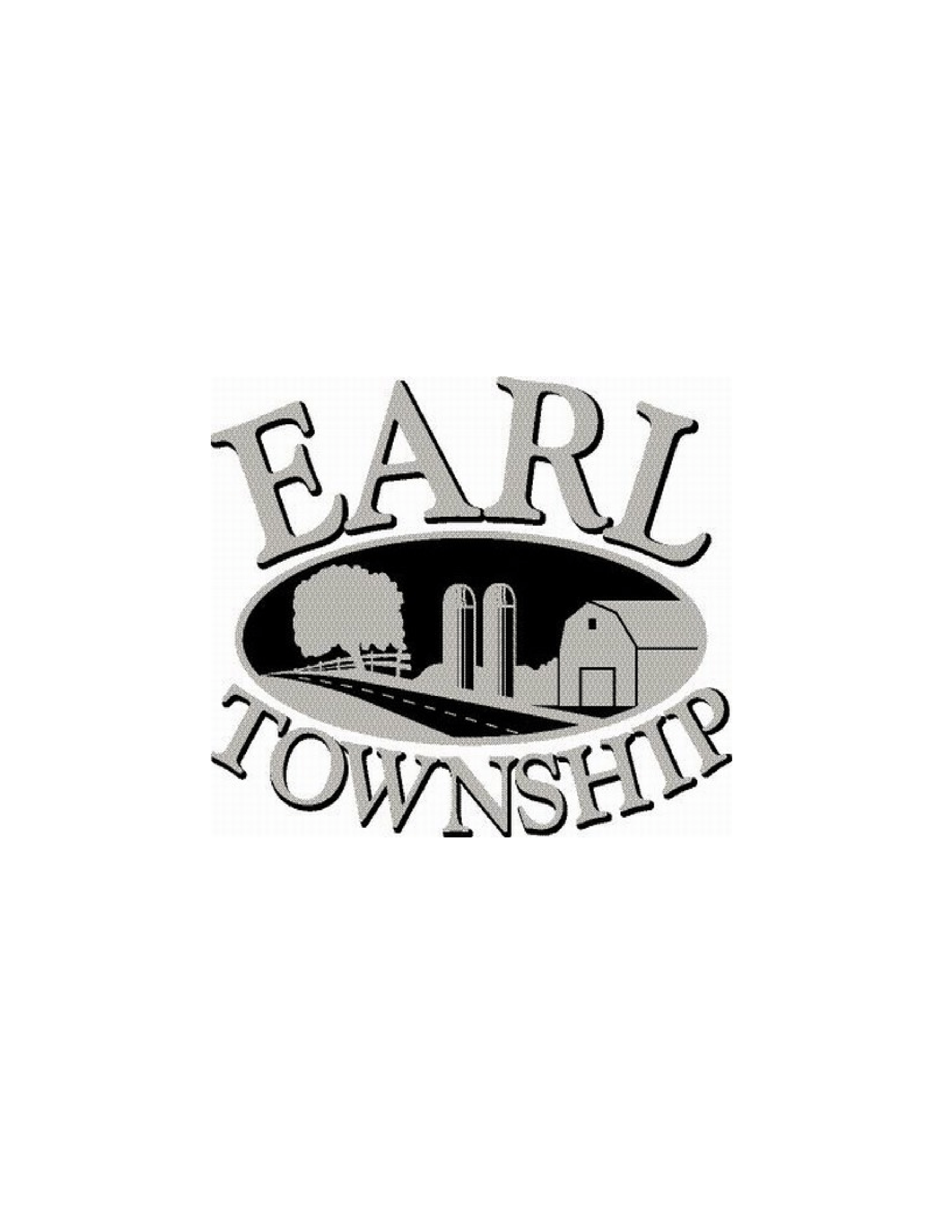**Go to Code of Ordinances page to view Earl Township Stormwater Management Ordinance**
WHAT IS STORMWATER
Stormwater runoff is generated from rain and snowmelt events that flow over land or impervious surfaces, such as paved streets, parking lots, and building rooftops, and does not soak into the ground. The runoff picks up pollutants like trash, chemicals, oils, and dirt/sediment that can harm our rivers, streams, lakes, and coastal waters. To protect these resources, communities, construction companies, industries, and others, use stormwater controls, known as best management practices (BMPs). These BMPs filter out pollutants and/or prevent pollution by controlling it at its source.
The NPDES stormwater program regulates some stormwater discharges from three potential sources: municipal separate storm sewer systems (MS4s), construction activities, and industrial activities. Operators of these sources might be required to obtain an NPDES permit before they can discharge stormwater. This permitting mechanism is designed to prevent stormwater runoff from washing harmful pollutants into local surface waters. (Source: https://www.epa.gov/npdes/npdes-stormwater-program)
For more information, see the following resources:
Department of Environmental Protection
NPDES and MS4 PROGRAM
NPDES (National Pollutant Discharge Elimination System)
MS4 (Municipal Separate Storm Sewer System)
The Clean Water Act is the federal legislation that governs stormwater management. Stormwater point discharges to waters of the U.S. (pipes and drain pipes) are regulated using National Pollutant Discharge Elimination System (NPDES) permits.
In 1999, federal regulations extended coverage of the NPDES program to local separate storm sewer systems (MS4’s) serving populations less than 100,000. Earl Township is required to comply with the NPDES program as a MS4 municipality. Under the NPDES stormwater program, permittees must develop a stormwater management plan that provides the details of how the community will comply with the requirements of the permit. Permits are based on a framework of six minimum control measures:
- Public education and outreach
- Public participation and involvement
- Illicit discharge detection and elimination
- Construction site runoff control
- Post-construction storm water management in new development and redevelopment
- Pollution prevention and good housekeeping for municipal operations and maintenance
For more information, see the following resources:
Lancaster County Conservation District (LCCD)
Center for Watershed Protection
Lancaster County Solid Waste Management Authority (LCSWMA)
Lancaster County Clean Water Consortium
STORMWATER ILLICIT DISCHARGE REPORTING
Click on the ‘Report an Illicit Discharge’ link below to report the following types of discharges in streams, rivers, and storm sewers:
- sewage and septage flows produced from sewer pipes and malfunctioning onlot septic systems;
- wash water flows of gray water (laundry) from homes, commercial car wash wastewater, fleet washing in parking areas, and commercial laundry wastewater;
- liquid wastes such as oil, gasoline, paint, engine wash water, and chemical waste;
- dumping of bulk dry powder such as fertilizer.
